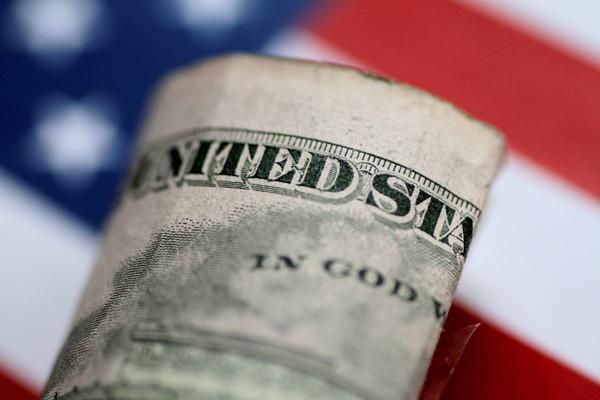You are here
Aussie dollar goes down under as global slowdown forces RBA shift
By Reuters - Feb 06,2019 - Last updated at Feb 06,2019

US President Donald Trump arrives to deliver the State of the Union address at the US Capitol in Washington, DC, on Tuesday (AFP photo)
LONDON — The Australian dollar nosedived on Wednesday after its central bank opened the door to a possible rate cut, in yet another indication the global economic slowdown is persuading policymakers to go easy on rate hikes.
World stocks too stalled just off two-month highs , undermined by the growth worries as well as US President Donald Trump's combative State of the Union address in which he unveiled no new policy initiatives. European shares traded marginally in the black and equity futures signalled a flat to weaker open on Wall Street.
Australia's central bank is only the latest to signal policy easing in the face of economic headwinds — the US Federal Reserve has all but abandoned plans for further rate hikes, while the European Central Bank also sounded less certain that it will start tightening policy later this year.
The U-turn pushed the Australian dollar 1.5 per cent lower, putting it on track for its biggest daily drop in a year. Australian short-dated bond yields were set for their biggest one-day drop in more than two years, down 10 basis points on the day.
"When I look at the global economy, Germany on is on the cusp of recession, Italy is in recession, Japan in on the cusp, the Chinese economy is seeing the lowest growth in three decades. The Fed had a look at the picture and said the world is slowing, it is maybe appropriate to pause," said Rhys Petheram, a fund manager in the multi-asset team at Jupiter Asset Management.
"I want to be more defensive in my allocation to risk," he added.
Wall Street finished strong on Tuesday and is now some 16 per cent off December lows but sentiment was knocked by the US president's failure in his annual speech to unveil new infrastructure plans.
He also raised the possibility of another government shutdown should financing not be forthcoming for a US-Mexico border wall.
Futures indicated a weaker open on US stocks with the S&P and Nasdaq both down 0.1 per cent.
European stocks, meanwhile, were undermined by the latest batch of earnings, which further underscored the weak local economy and the drag on companies from slower global trade.
Shares in BNP Paribas and carmaker Daimler slumped 1 per cent and 3 per cent respectively, ending the market's six-day rally. French-listed BNP Paribas lowered its profit and revenue growth targets for 2020 while Daimler's profits were hit by trade war and ballooning costs for developing electric and self-driving cars
Germany's DAX index lost 0.5 per cent.
Europe drags
Europe's economic weakness prompted demand for bonds, with German 10-year government bond yields trading around 0.17 per cent, well off the 0.21 per cent highs hit on Tuesday.
Investors have pushed back expectations that the European Central Bank will hike rates this year, a view reinforced after data showed German industrial orders fell on weak foreign demand in December.
Investors will also be looking to the European Commission's winter macroeconomic forecasts, due to be published on Wednesday or Thursday. Large downward revisions to growth and inflation are likely, many analysts predict.
"The moderation of growth is so widespread it makes the ECB's job easier, as it was more difficult for them to justify their stance when Germany was leading the economic cycle while other countries were lagging growth," said Monica Defend, chief strategist and deputy head of research at Amundi.
The appetite for bonds also was evident in the 33 billion euros worth of orders investors had placed for Italy's new 30-year bond by 11:15 GMT.
Concerns for world growth fanned fears for global energy demand, hitting crude prices. Brent futures were trading around $61.59 a barrel.
On the Brexit front, sterling looked fragile at around $1.2951 after losing nearly 0.7 per cent on Tuesday when weak service sector data underscored damage to the economy from Brexit uncertainty.
Prime Minister Theresa May will travel to Brussels on Thursday to tell EU leaders they must accept legally binding changes to the Irish border arrangements of Britain's divorce deal or face a disorderly no-deal Brexit.
Related Articles
LONDON — The price of gold on Wednesday briefly rose above $1,500 per ounce, a key level last breached six years ago, as investors sought sh
LONDON — Mounting global growth worries thrust share markets into reverse on Thursday, while the dollar scored its longest winning run since
FRANKFURT — German top-of-the-range carmakers Audi and Mercedes-Benz on Friday reported record sales in 2015, even holding their own in Chin



















